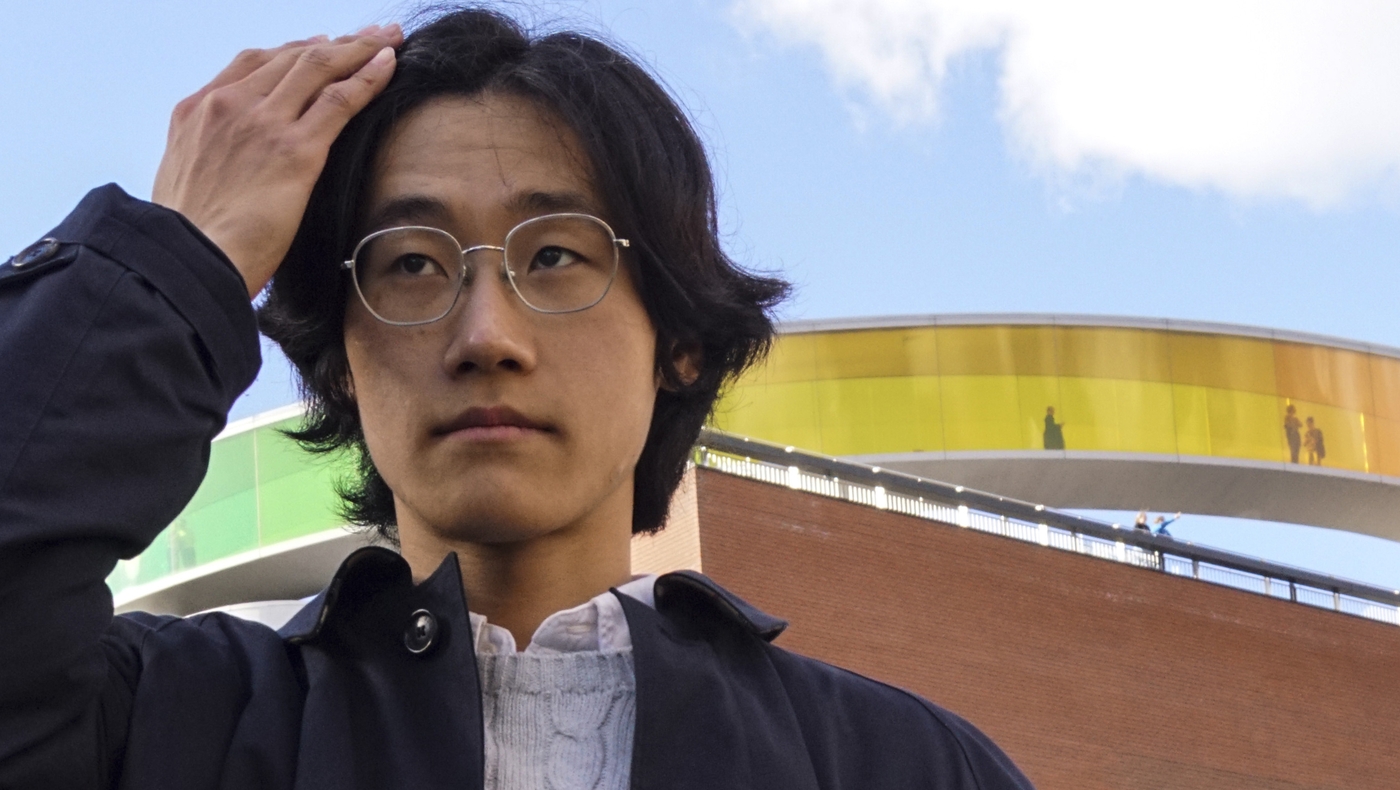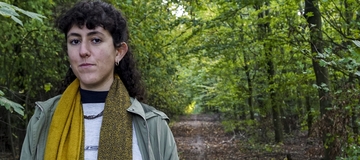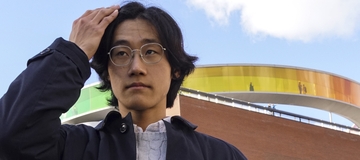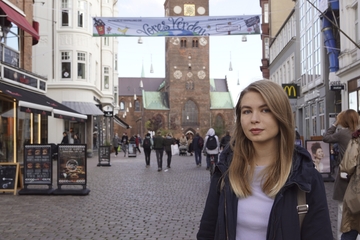Studying Journalism on Foreign Ground
Every semester DMJX welcomes 60 exchange students from all over the World. But how is the exchange experience?

Illustreret Bunker is a monthly magazine written by the students at DMJX. Two of them, Rikke Mathiasen and Pernille Stiesdal, has met three of the international students for a talk about, how it is to study in Denmark, what the exchange means to them, and what dreams they have for the future.
Kerin Beadoin, Israel:
An exchange semester has been the plan for 25 years old Keren Beadoin from Israel ever since she applied for her university.
In Tel Aviv she studys on two different departments, media and cinema, and here in Aarhus, she is part of the international video semester.
In the future she can easily imagine herself making documentaries as a video journalist. But she is not sure if it will be in Israel.
“Tel Aviv is an amazing city and I love living there. But there is a “vibe” in the media houses back home that I just don’t like,” she says.
“I want to work somewhere that I can be proud of.”
Let’s explain this “vibe”:
In Israel the prime minister Benjamin Netanyahu has been accused and charged for bribing Israel’s biggest newspaper, Yedioth Ahronoth, and the Israeli media house Walla!. In return the media had to make sure that they covered him and his government in a positive way.
And according to Keren this corruption is not a one-time story.
“There are so many lies, and it takes place in so many layers, that it’s hard to grasp how big the problem actually is,” she says.
For the same reasons, Keren is not sure she wants to make journalism about the Israeli politics.
“It is a dilemma for me. I really want to make a difference and point out the things that are wrong, but at the same time I feel like the problems are just too massive.”
Instead Keren dreams about working with the international media Vice. It covers politics as well as culture, art and lifestyle.
“I remember being younger when I was watching some of the Vice documentaries and I found it was very interesting,” she says.
“I made a mental note that, maybe this is what I want to do. And now that I’m abroad I have an even stronger feeling that this is right for me.”
Jae Hoon Choi, South Korea:
“It was a culture chock!” Jae Hoon Choi says, laughing.
He’s talking about the first time he saw a danish student put his feet on the table in the middle of class.
“In South Korea that would be considered very rude.”
Jae is 25 years old and comes from South Korea where he studies media and communication. Here in Aarhus he has joined the international video semester.
In Jae’s view there are big differences between studying at DMJX and at home in Seoul.
“It’s about the whole studying purpose,” he says.
In South Korea the students need to think a lot about getting good grades. It can turn out vital when they later have to apply for work on a job market that gets more and more narrow. Jae explains that there are too many applicants for too few places, and that even the ones who have a high education struggle with finding jobs.
“That’s why going to school ends up being more about the grades than about the actual learning,” he says.
Morten is just Morten
In South Korea there is a great sense of authority between students and teachers. This becomes clear through the South Korean language, where there is a difference between formal and nonformal wording.
In Denmark he had to get used to the fact that his teacher Morten Brøcker is called Morten, and that Hans Bromand is just Hans.
“In South Korea it’s sometimes difficult to talk comfortably with your teacher. It’s not a normal conversation between two persons but very clearly a conversation between a student and a professor.”
Jae has no doubt about what works the best for him.
“I definitely prefer the Danish way. In Korea I was actually a bit weird because I didn’t like that kind of education,” he says.
“I’m much more comfortable in this atmosphere. I feel like I can be freer and more like myself, and I have a bigger confidence in the things I’m doing. That’s just more efficient for learning.”
Alena Rodicheva, Russia:
”I have heard a lot of different comments since I came here to Europe, for instance, that I love Putin. On the other hand, in Russia people think that all Europeans worship the U.S,” says 21 years old Alena Rodicheva and rolls her eyes meaningfully.
At home in Skt. Petersburg Alena studies journalism on the seventh semester. Here in Denmark she’s on the international new reporting semester.
For Alena travelling and doing exchange semesters plays a big part in breaking down the stereotypes.
”There is a very unique atmosphere when you are part of an exchange program. You meet a lot of people with different cultural backgrounds and you discover that you still have a lot of things in common. I’ve learned that I share both values, worries and hopes for the future with people from all over the world.”
Actually, it wasn’t always Alena’s plan to end up here on an exchange semester. When she first heard about the opportunity, she thought it sounded too expensive and she was worried that she wouldn’t get good grades when the courses were in English.
But a friend of hers convinced her to apply for a semester in Norway and to her own surprise, Alena was chosen and not only for the course. She was also granted an Erasmus stipendium which meant that her whole stay was financed.
“That is a period of my life that I will never forget,” Alena says.
After the stay in Norway, she returned to Russia, but the longing to travel soon returned.
“At home in Skt. Petersburg it was way too easy to not challenge myself,” she says, “so my next thought was ‘where do I go now?’”
And then she chose Denmark and DMJX.
“The exchange semesters have opened my eyes for the fact that I can build my life the way I wish, and that a lot of things are possible when you want it badly enough.”
To meet the actual persons
In the future, Alena hopes that she’ll be able to help other people get the same experiences. She dreams about being an international journalist either reporting back to Russia or another country.
“I think it’s really important, that we are well informed about the world around us.”
She’s also thinking about working with facilitating exchange semesters for future students.
“I hope more people get the opportunity to do exchange. It’s really important that we get to know each other beyond cultures and conflicts and get to meet the actual persons.”


